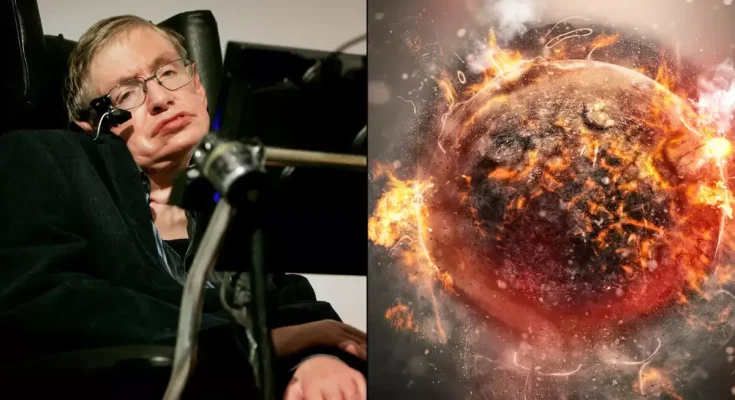Stephen Hawking made a bold claim about the end of the world and explained what will speed the process up
The late Stephen Hawking thought the world was going to end sooner than we might think.
It’s a grim subject to consider on a Tuesday morning, but here we are.
One of the most famous scientists of all time once made a damning statement about our future if we continue on our current trajectory.
Hawking was no stranger to setting predictions about our future, though this stands as one of his most famous, as he gave us a year to look out for.

His prediction about our future was harrowing (Bruno Vincent/Getty Images)
The famous physicist and author of The Theory of Everything foresaw a grim scenario for us in just under 600 years.
Prior to his passing back in 2018, he explained that factors such a population growth and energy consumption could transform the Earth into a ‘giant ball of fire’, unless we changed something.
The former University of Cambridge mathematician explained his prediction of our impending doom at the Tencent WE Summit in November, 2017, as he revealed that the world’s population up to that point was doubling every 40 years.
He explained: “This exponential growth cannot continue into the next millennium,
“By the year 2600, the world’s population would be standing shoulder to shoulder, and the electricity consumption would make the Earth glow red-hot.
“This is untenable,” Hawking said in his computer-generated voice.
It has recently been reported Hawking’s chilling claims have been backed up by NASA, though they have since denied this, as a spokesperson highlighted to Newsweek: “NASA has not made this claim.”

Come 2600, Hawking believes that Earth could look something like this (Getty Stock Photo)
The space agency are worried about global threats to humanity though, adding: “For more than 50 years, NASA has studied our home planet, providing information to directly benefit humanity and producing observations that can only be gathered in space that address some of the areas that Hawking mentioned.”
So, is it too late to make a change?
Hawking had previously explained to the BBC in 2016: “Although the chance of a disaster to planet Earth in a given year may be quite low, it adds up over time and becomes a near certainty in the next thousand or 10,000 years.”
He attributed this prediction to global warming, climate change and the greenhouse effect as the main causes of bringing Earth to its demise.
In the years since, it doesn’t look like humanity has changed much in these departments.
The end of the world may actually be closer than previously predicted, as Hawking also pointed towards nuclear war, artificial intelligence and pandemics as existential threats.
Two down, one to go.
Featured Image Credit: Bruno Vincent/Getty Images / Getty Stock Photo



